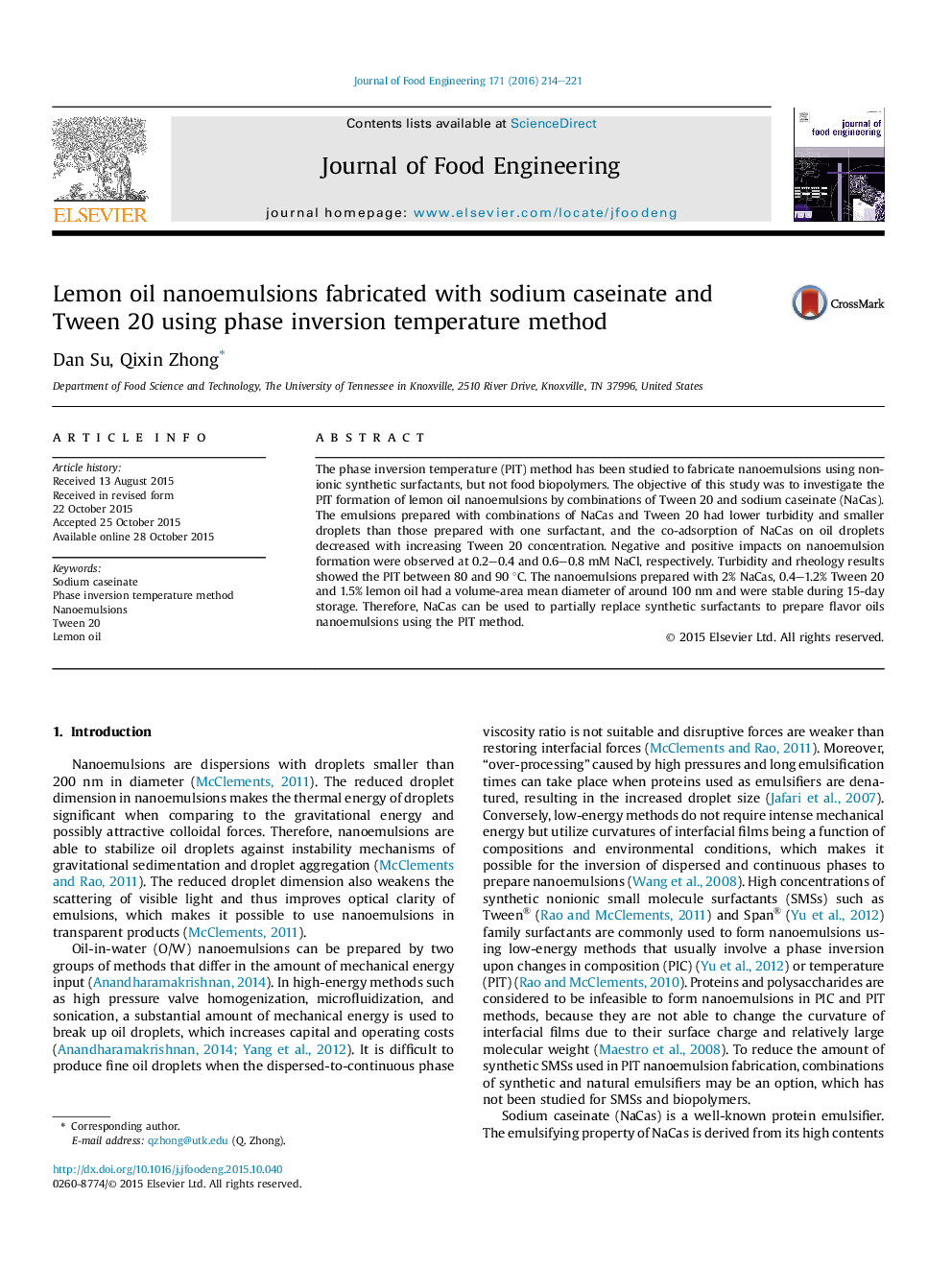| کد مقاله | کد نشریه | سال انتشار | مقاله انگلیسی | نسخه تمام متن |
|---|---|---|---|---|
| 222798 | 464296 | 2016 | 8 صفحه PDF | دانلود رایگان |

• The phase inversion temperature method was studied to form lemon oil nanoemulsions.
• The combination of sodium caseinate (NaCas) and Tween 20 was studied.
• The combination reduced emulsion turbidity and droplet size stable for 15 days.
• NaCas was present on the interface, but at a lower amount with more Tween 20.
• NaCl increased emulsion turbidity at 0.2–0.4 M, but not at 0.6–0.8 M.
The phase inversion temperature (PIT) method has been studied to fabricate nanoemulsions using non-ionic synthetic surfactants, but not food biopolymers. The objective of this study was to investigate the PIT formation of lemon oil nanoemulsions by combinations of Tween 20 and sodium caseinate (NaCas). The emulsions prepared with combinations of NaCas and Tween 20 had lower turbidity and smaller droplets than those prepared with one surfactant, and the co-adsorption of NaCas on oil droplets decreased with increasing Tween 20 concentration. Negative and positive impacts on nanoemulsion formation were observed at 0.2–0.4 and 0.6–0.8 mM NaCl, respectively. Turbidity and rheology results showed the PIT between 80 and 90 °C. The nanoemulsions prepared with 2% NaCas, 0.4–1.2% Tween 20 and 1.5% lemon oil had a volume-area mean diameter of around 100 nm and were stable during 15-day storage. Therefore, NaCas can be used to partially replace synthetic surfactants to prepare flavor oils nanoemulsions using the PIT method.
Journal: Journal of Food Engineering - Volume 171, February 2016, Pages 214–221